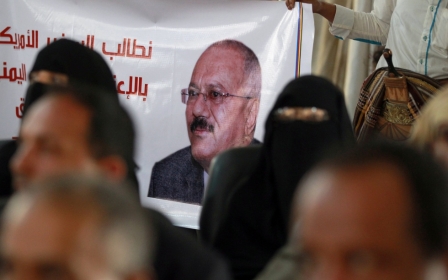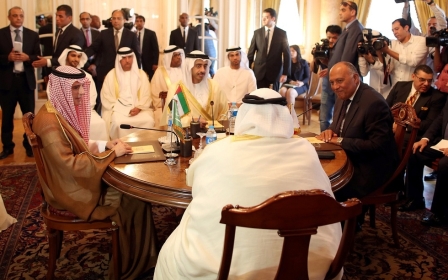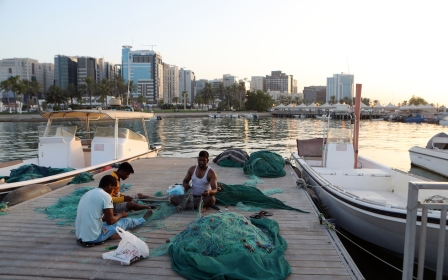Arabic press review: UAE on the march, Qatar siege on the wane
MBZ on the march
Research by the Egyptian Media Centre, a group opposed to the government of Abdel Fatah al-Sisi, shows the UAE’s interventions in Arab countries are part of a strategy put in place since the rise of Abu Dhabi’s crown prince, Mohammed bin Zayed, to army chief in 1992, Arabi21 has reported.
The study said the UAE's recent regional policy was not just a reaction to the "Arab Spring" of 2011.
Quoting the study, Arabi21 said: "The role of the UAE in the region went beyond ordinary interventions to the level of committing crimes that violate international law, such as funding military coups and giving huge bribes to institutions and people to work against the interests of their own countries."
It said the UAE was "attempting to alter the political and economic contexts in those countries by creating instability in order to destabilise established regimes or buying people and alliances on a wide scale".
Qatar can take it
On its front page, the London-based al-Quds al-Arabi newspaper concludes that "the embargo on Qatar is not likely to continue," after analysing the current details of the crisis in the Gulf region.
The US has said the Saudi-led quartet has made "impossible demands" of Qatar, the newspaper said, and that the Saudi allies are emboldened by the statements by US President Donald Trump.
The newspaper also points out that Kuwait, with its distinguished liberal political and media experience, refuses to be subservient to Riyadh or Abu Dhabi.
In addition, the visit to Iran of the Omani foreign minister, Yusuf bin Alawi, is a clear indication that any escalation against Qatar would lead to the fragmentation of the Gulf Cooperation Council and a new regional balance of power.
Algerian anger at Saudi ambassador
Algerians have expressed anger at the statements of the Saudi ambassador, who described Hamas as a "terrorist organisation".
Social media users launched a campaign to support Hamas and to reject the statements, according to the Algerian al-Shorouk al-Yawmi newspaper.
Rashid Ould Bousyafah wrote, "Whoever wants to criminalise the Palestinian resistance to appease the Zionists, let him do so in his own country."
The Movement of Society for Peace and the al-Binaa movement criticised the ambassador's statements, saying, "This is unacceptable and cannot be tolerated."
They also called on the ambassador to respect the Algerian people's stance on the Palestinian cause.
Don't bank on it
An Iranian parliamentary report has criticised the US administration for "scaring" international banks away from making financial deals with Iran, according to the London-based al-Sharq al-Awsat newspaper.
The report states that global banks are refusing to deal with Iran for fear of US sanctions and that Iran's financial and banking problems are still continuing more than a year after the implementation of the nuclear agreement.
The report also accuses the G5+1 group of world powers of not fulfilling its commitments in suspending sanctions against the Iranian financial sector.
The report states that the Iranian financial system has not been able to restore relations with large banks, and that the US Treasury Department is the main reason.
It stresses that the Central Bank of Iran faces significant economic and financial challenges in carrying out financial transactions.
New MEE newsletter: Jerusalem Dispatch
Sign up to get the latest insights and analysis on Israel-Palestine, alongside Turkey Unpacked and other MEE newsletters
Middle East Eye delivers independent and unrivalled coverage and analysis of the Middle East, North Africa and beyond. To learn more about republishing this content and the associated fees, please fill out this form. More about MEE can be found here.




